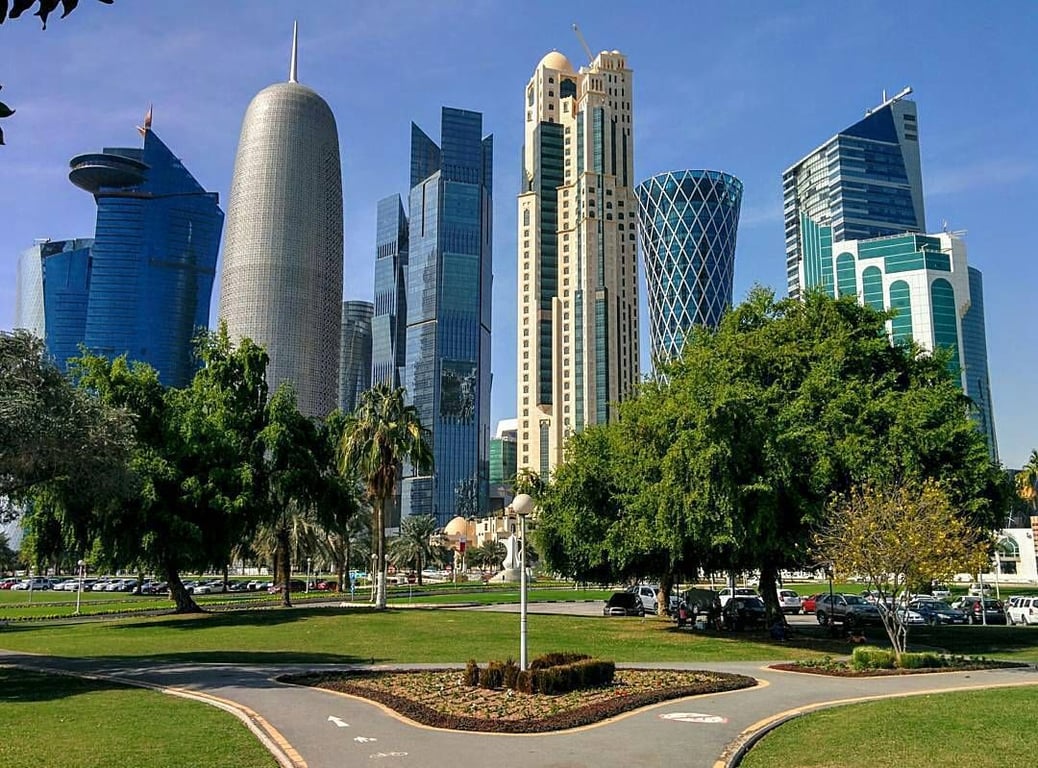Under Qatar’s National Vision 2030, the government has reoriented its economy away from hydrocarbons toward high-value sectors such as clean technology, water treatment and sustainable utilities. A suite of regulatory reforms, public–private partnerships and targeted infrastructure spending is creating fertile ground for businesses specializing in advanced desalination, renewable energy integration and digital water management
Shift Toward Advanced Desalination
-
Reverse Osmosis Expansion Reverse osmosis (RO) has overtaken thermal desalination as Qatar’s fastest-growing production method. RO capacity now exceeds 575 million imperial gallons per day (MIGD), surpassing thermal systems at 504 MIGD.
-
Rising Output and Efficiency Gains Annual desalinated output climbed to 602 million m³ in 2017, up from 557 million m³ in 2016. New multi-effect distillation (MED) pilot facilities and hybrid solar-RO installations are driving energy use below 5 kWh per m³—less than half that of traditional thermal plants
Renewable Energy Integration
-
Diversifying the Power Mix
Qatar aims to reduce the share of fossil-fuel-based thermal generation from 90 percent to 82 percent by 2030, with the remainder supplied by solar, wind and burgeoning green hydrogen projects.
-
Toward a Hydrogen-Water Export Hub
Coupling desalination plants with electrolysis units could enable combined exports of freshwater and zero-carbon hydrogen, positioning Qatar as a regional clean-energy supplier rather than merely a consumer.
Smart Infrastructure and Conservation Programs
-
Mega-Reservoirs Project
The Water Security Mega-Reservoirs initiative will add more than 2.3 billion gallons of storage across five sites by 2026—enough to cover seven days of national consumption—solidifying Qatar’s emergency supply capacity.
-
Tarsheed Conservation Campaign
Launched in 2012, the Tarsheed program reduced per-capita daily water usage from 595 litres to 459 litres by 2015 through tiered tariffs, public awareness and technology incentives.
-
Digital Water Management
Utilities are rolling out smart meters, AI-driven analytics and digital twin platforms to detect leaks, predict maintenance needs and curb network losses by 10–15 percent.
Circular Economy in Water Treatment
Brine Valorisation
The disposal of concentrated brine—a by-product of desalination—is catalyzing new ventures in “brine mining,” where magnesium, lithium and other minerals are extracted for sale rather than released as waste
Emerging Opportunities for Startups and Investors
-
Clean-Tech Services
Companies offering energy-efficiency consulting, hybrid solar-RO retrofits and ISO 50001 compliance support are in high demand.
-
Digital Solutions
AI platforms for predictive maintenance, dynamic water-pricing engines and IoT-enabled leak detection systems are attracting venture funding.
-
Resource Recovery
Brine-mining pilot projects and studies into green hydrogen co-production represent frontier niches with strong government backing.
With its strategic policy framework, massive infrastructure rollouts and growing emphasis on digital and circular water solutions, Qatar is charting a path toward a resilient, diversified economy where sustainable urban utilities and clean-tech innovations play a central role.
Follow us for more:Falak is a one-stop digital platform for entrepreneurship and innovation in Qatar, bringing together startups, entrepreneurs, and innovators to access resources, and navigate the Qatari entrepreneurial ecosystem. Whether it's news, market insights, a startup directory, startup job opportunities, or expert consultations, you will find it on Falak!


Share:
QFC Certifies TASMU Accelerator as Approved Co-working Hub
Invest Qatar at London Tech Week 2025